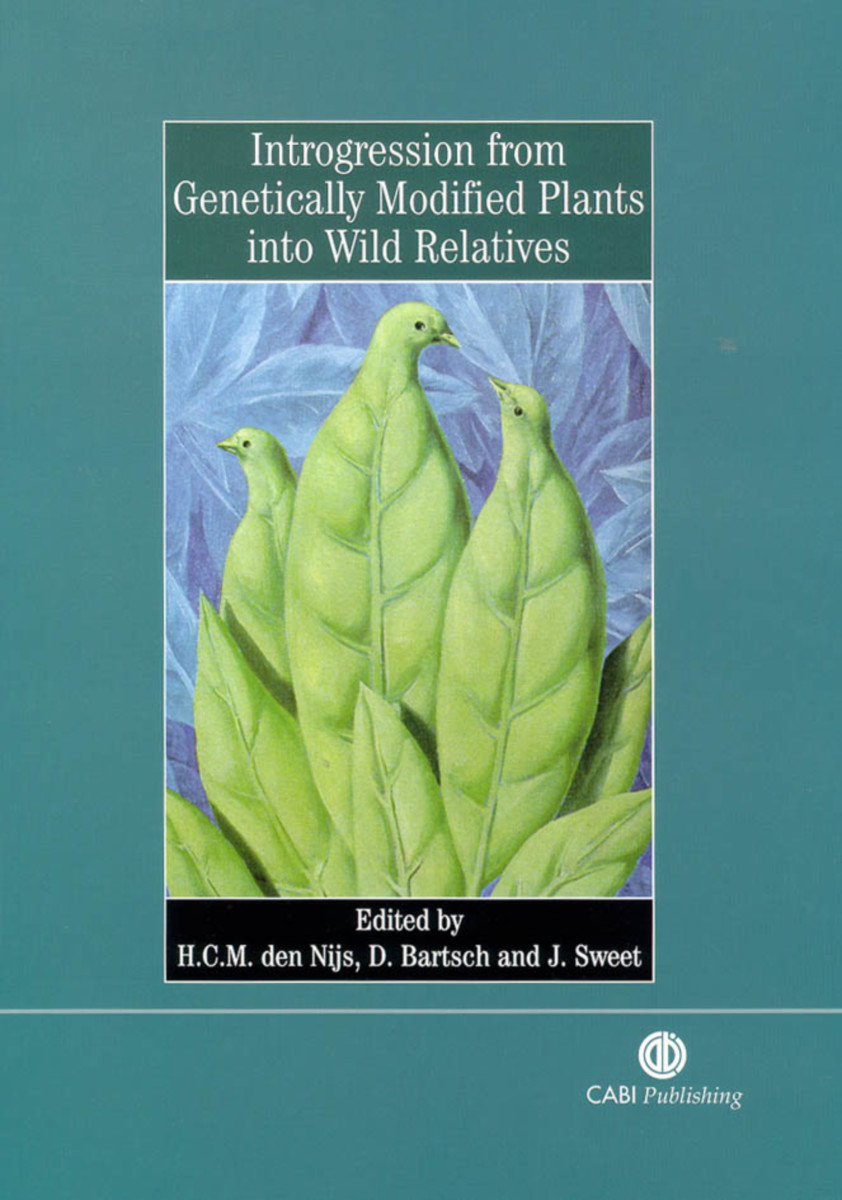Introgression from Genetically Modified Plants into Wild Relatives
- Publisher
CABI - Published
8th July 2004 - ISBN 9780851998169
- Language English
- Pages 432 pp.
- Size 6.875" x 9.75"
Introgression is the incorporation of a gene from one organism complex into another as a result of hybridization. A major concern with the use of genetically modified plants is the unintentional spread of the new genes from cultivated plants to their wild relatives and the subsequent impacts on the ecology of wild plants and their associated flora and fauna.
The book reviews these issues, focusing on the ecological and evolutionary effects of introducing GM cultivars. It presents current knowledge of crop-wild relatives hybridization and introgression, and the measurement and prediction of their consequences. As a result it represents a major contribution to the debate about the risks of GM crops and measures, such as post commercialization monitoring, required to determine the longer term impacts of GM crops on ecosystems.
The book presents edited and revised presentations given at a conference of the same name, organized in January 2003 by the University of Amsterdam (Netherlands) and the Robert Koch Institute (Germany), on behalf of the European Science Foundation funded program for Assessment of the Impacts of Genetically Modified Plants (AIGM).
"For those who wish to understand the GM problem - read this book!"
- Elsevier Trends Journal
"This is a fascinating overview of plant hybridization and a sane evaluation of the problems that may arise through the unintentional spread of transgenes into native or semi-native populations. This book is an important contribution to public debate, an authoritative scientific review and a valuable synthesis of the available literature on this vexed topic."
- Plant Talk
"The chapters include thoughtful reviews, straightforward reports on current research, and a helpful contribution on the details of the European Union requirements to monitor for environmental effects of the introduction of GMOs, particularly as they relate to introgression. This book is essential reading for scientists, regulators and educators with an interest in the interaction of GM crops with their environment."
- Experimental Agriculture
Introduction and the AIGM Research Project
SECTION 1: HYBRIDIZATION IN CROP-WILD-PLANT COMPLEXES
* Hybridization in nature: lessons for the introgression of transgenes into wild relatives
* Introgressive hybridization between invasive and native plant species - a case study in the genus Rorippa (Brassicaceae)
* Hybrids between cultivated and wild carrots: a life history
* Gene exchange between wild and crop in Beta vulgaris: How easy is hybridization and what will happen in later generations?
* Hybridization between wheat and wild relatives
* Molecular Genetic Assessment of the Potential for Gene Escape in Strawberry, a Model Perennial Study Crop
* Gene flow in forest trees: Gene migration patterns and landscape modelling of transgene dispersion in hybrid poplar
* Implications for hybridization and introgression between oilseed rape (Brassica napus) and wild turnip (B. rapa) from an agricultural perspective
* Asymmetric gene flow and introgression between domesticated and wild populations
* Crop-to-wild gene flow in rice and its ecological consequences
* Potential for gene flow from herbicide-resistant GM soybeans to wild soy in the Russian Far East
* Analysis of gene flow in the lettuce crop-weed complex
SECTION 2: GENE FLOW: INTROGRESSION AND ADOPTION OF GENES
* Introgression of cultivar beet genes to wild beet in the Ukraine
* Crop/wild interaction within the Beta vulgaris complex: a comparative analysis of genetic diversity between sea beet and weed beet populations within the French sugar beet production area
* Crop/wild interaction within the Beta vulgaris complex: Agronomic aspects of weed beet in the Czech Republic
* A protocol for evaluating the ecological risks associated with gene flow from transgenic crops into their wild relatives: the case of cultivated sunflower and wild Helianthus annuus
* A review on interspecific gene flow from oilseed rape to wild relatives
* Gene introgression and consequences in Brassica
* Transgene expression and genetic introgression associated with the hybridization of GFP transgenic canola (Brassica napus L.) and wild accessions of bird rape (Brassica rapa L.)
SECTION 3: IMPACT AND CONSEQUENCES OF NOVEL TRAITS
* Insect resistant transgenic plants and their environmental impact
* Risk assessment of genetically modified undomesticated plants
* A tiered approach to risk assessment of virus resistance traits based on studies with wild Brassicas in England
* Environmental and agronomic consequences of herbicide-resistant (HR) canola in Canada
SECTION 4: MONITORING FIELD STUDIES, MODELLING AND SCIENTIFIC STANDARDS FOR REGULATION
* Prospects of a hybrid distribution map between GM Brassica napus and wild B. rapa across the United Kingdom
* Potential and limits of modelling to predict the impact of transgenic crops in wild species
* Introgression of GM plants and the EU Guidance note for Monitoring
Hans C M den Nijs
No information
Detlef Bartsch
No information
Jeremy Sweet
Jeremy Sweet is with the National Institute of Agricultural Botany (NIAB), Cambridge, UK.


